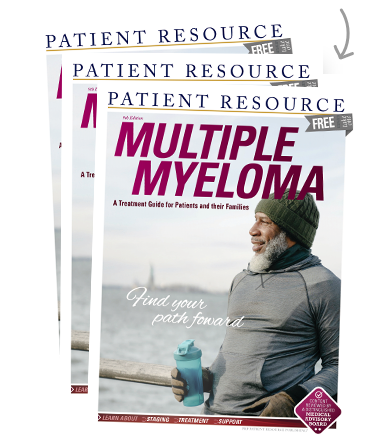Multiple Myeloma
Clinical Trials
Clinical trials offer access to innovative treatments that test therapies before they are widely available. Multiple myeloma is an active area of research with many new drugs and combination therapies being studied in trials. To determine if a clinical trial may be right for you, it is important to understand the basics about this critical component of cancer research.
Most cancer treatments used today were once developed, tested and evaluated in the clinical trials process by the U.S. Food and Drug Administration (FDA). Trials are designed with strict safety measures and protocols in place that continue to be enforced by the FDA.
Although sometimes open to patients at every stage, a clinical trial may be your best option if your multiple myeloma has become resistant to your current treatment or if you have already had multiple lines of therapy.
Trials take place in nationally known cancer centers in major cities, in university medical centers, regional hospitals and private oncologists’ offices. Additionally, as a result of advances in technology, some trials use telehealth so you don’t have to travel for appointments as often.
Once you and your doctor find a trial that may be a good fit, you will learn more about it through a form called Informed Consent. The form includes the unique criteria that you must meet to be admitted to the trial, the therapy being used in the study, the cost of the trial, potential risks and benefits, known side effects and more. You must review and sign the form before moving forward with the trial. Even after it begins, your participation is always voluntary. You can withdraw at any time and for any reason.
Talk with your doctor about considering a clinical trial. By simply participating, you will become a partner in cancer research, helping improve treatments for future patients. For everyone to get the most benefit, volunteers from many different backgrounds and life experiences are necessary. Volunteers of all ages, genders, locations, races and ethnicities, weights, sexual orientations and socioeconomic groups are needed.
DID YOU KNOW…
…that you are assured of receiving at least the current standard of care for your diagnosis? A common misconception about clinical trials is that you will get a placebo instead of the cancer-fighting drug. In the rare instances that placebos are used in cancer care, they are used in combination with the current standard of care where the trials divide participants into separate groups that compare different treatments.



